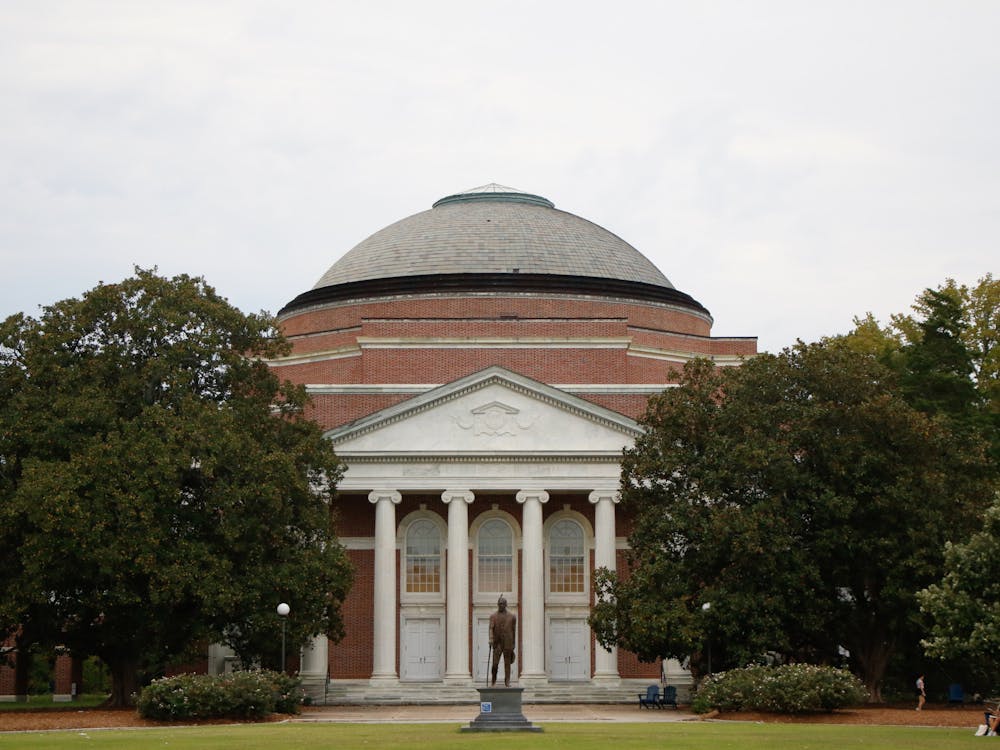On Aug. 17, Duke welcomed 1,733 new students to the Blue Devil community, where they experienced their Duke “firsts” — making college friends, taking courses and joining clubs and student organizations.
The Chronicle spoke to sophomores — who experienced these firsts just one year ago — to hear about their experience in finding community and balance in their academic and social lives.
Finding balance
As one of the top-ranked schools in the country, students may step on campus overwhelmed with the pressure of succeeding academically.
Sophomore Nitya Chadha recalled how although she thought she would have to be “grinding 24/7 … that’s really not the case.”
“You need to take breaks and go have fun,” she said. “And that does contribute to doing well in college and your [academic] success because it is very easy to get burnt out.”
Sophomore Yurika Sakai echoed Chadha, noting how impressed she was that Duke students are able to balance “going out, having a social life [and] being involved in so many clubs” while succeeding academically. Although she added that it was initially “scary” and “hard to balance all those things at once,” it is something she was later able to achieve.
Sakai also emphasized the importance of embracing alone time, noting that studying alone can make time to later hang out with friends.
Chadha wishes she knew it was normal to be unsure of her future goals.
“It’s ok to change your mind, that’s normal,” she said. “A lot of people do change their mind about their major,” adding that she still remains uncertain what her academic plans are.
Sakai also shared that although she entered Duke as a chemistry major, she is now considering switching to biology, as well as adding in minors or certificates.
Students are able to change their major within their designated home college — Trinity College of Arts & Sciences and Pratt School of Engineering — or between the two colleges upon completion of their first semester. Students interested in switching can speak with their academic dean to discuss how that change fits into their academic schedule.
Acclimating to a new community
This year’s first-year class hails from all 50 states and 87 countries, bringing in diverse life experiences and perspectives. For many of those students, coming to Duke marks a significant change from their hometown environment.
Chadha, who is from a small town in northern New Jersey, initially found her time at Duke overwhelming.
“I knew all the faces, I knew everyone,” she said of her high school. Although Chadha had a small group of friends at home, she came to enjoy the larger student body at Duke and the opportunity to meet new people.
Sakai, who is from Connecticut, shared that the transition from high school to college was nerve-wracking, but that meeting new friends through Orientation Week in Project Discover eased her into the community nicely.
Sakai reflected on the urge some students may have to compare themselves to others, but said that coming to college presented her with a different perspective — one where being surrounded by people with different interests is valuable and that “you don’t have to do the same thing as everyone else.”
Tips for success at Duke
Duke Undergraduate Admissions consolidates a list of tips and tricks for succeeding at Duke.
Get The Chronicle straight to your inbox
Sign up for our weekly newsletter. Cancel at any time.
The University recommends that students get to know their professors by attending office hours and taking advantage of FLUNCH, a program that funds each undergraduate student up to $70 per semester to have lunch with faculty members and create professional connections.
The guide also recommends students to keep their social circle open, get to know the C1 bus drivers and find study spots outside of their dorm.
Students are also encouraged to track their food points. Taking advantage of “equivalency points” will save students money on the first-year meal plan. Instead of using a morning meal swipe at Marketplace, students can cash in $5.70 at Skillet before 2 p.m., Trinity Café before 12:30 p.m. or Marketplace for lunch.
Additionally, students are recommended to bring a sleeping bag to college and meet their neighbors by hanging out in common rooms.
Other tips include leveraging the Duke advising network — including the librarian assigned to each first-year residence hall — and sample new courses of interest.

Jothi Gupta is a Trinity junior and an enterprise editor of The Chronicle's 120th volume.

